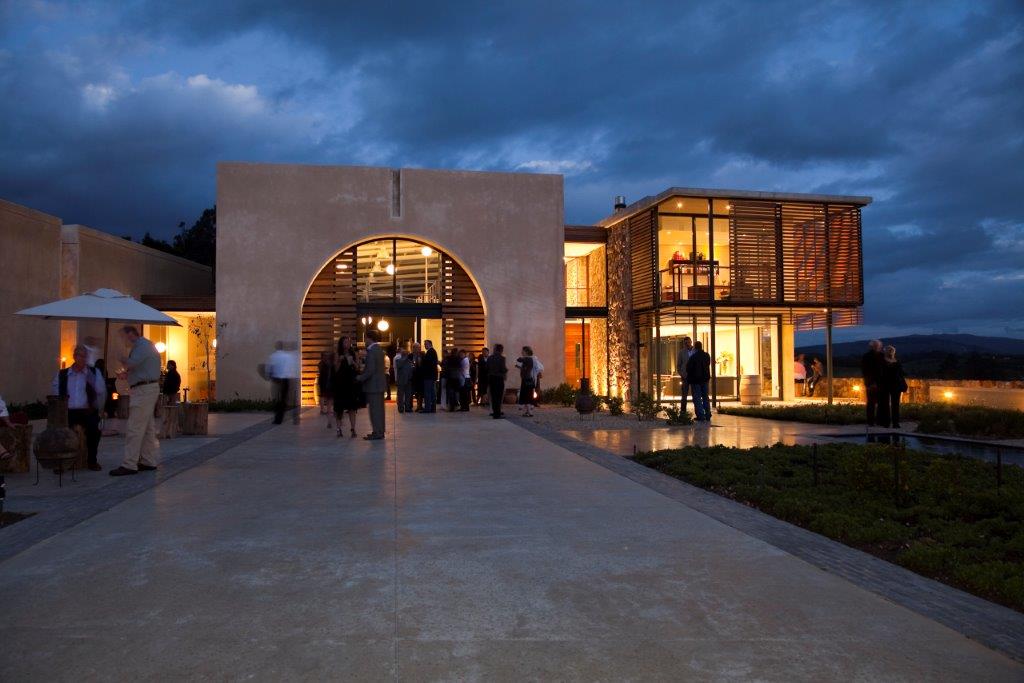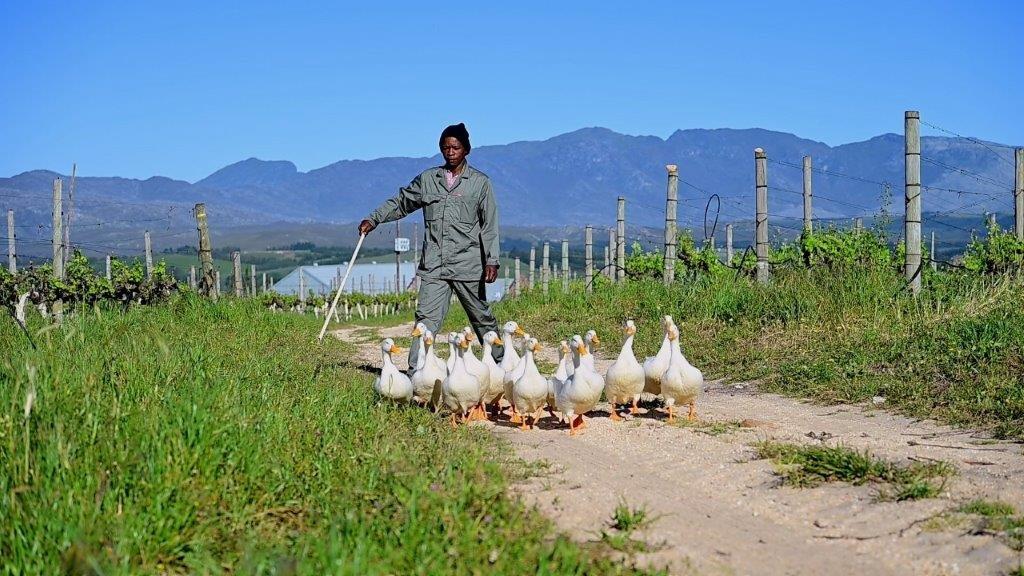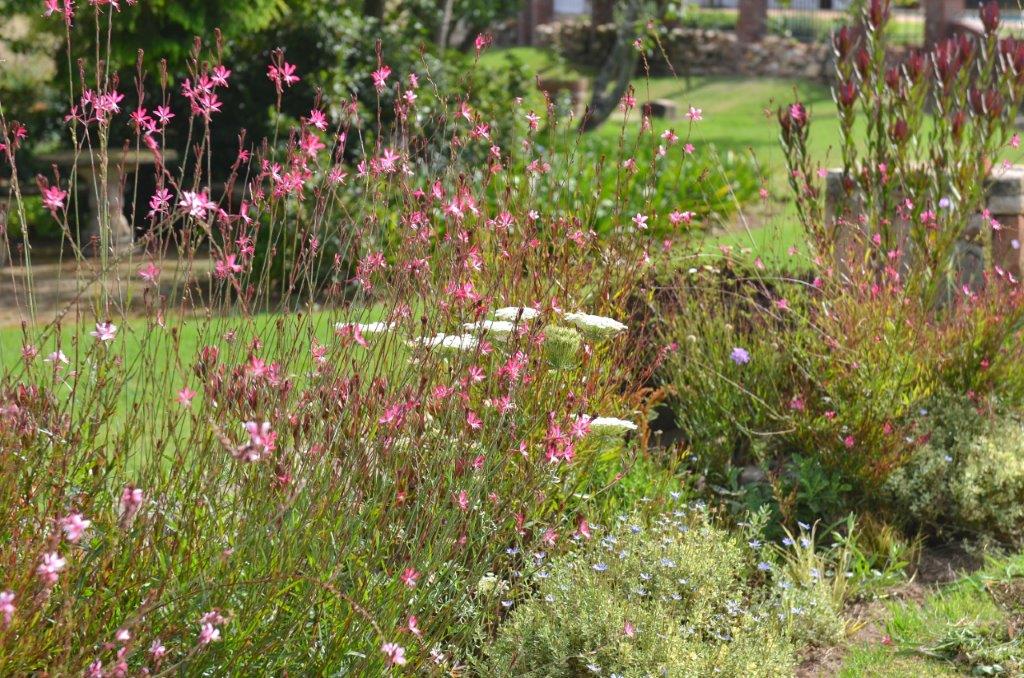Nature’s abundance is a fitting description of Elgin, a high-lying valley, around an hour’s drive south-east of Cape Town. Many years known for its apple and pear orchards, Elgin’s cool climate is also suited to wine growing. Although vines were planted there in the 19th century, it was only in 1986 the Elgin vineyards we know today were planted on the Cluver family’s De Rust farm. Early vintages of Paul Cluver Wines were made at Nederburg; the new home-farm cellar and current winemaker, Andries Burger, being inaugurated in 1997. Their ongoing commitment to expressing the character of Elgin is recognised, in particular in Paul Cluver chardonnay and pinot noir.
Many others, some from distant lands, have also recognised Elgin’s potential for cool-climate wines. Joris and Natalie van Almenkerk arrived from Belgium and the Netherlands in 2002, fell in love with South Africa and decided to stay; their search for a farm with good terroir in a cool-climate, ended when they bought an apple farm in Elgin. Apples and pears are still grown and have been joined by 15 ha of vines.
In memory of their homelands, the van Almenkerks designed their winery on the idea of a traditional Flemish Vierkantshoeve (square farm), which typically features buildings arranged in a square around a central courtyard or open space. The layout focuses on functional efficiency, each building dedicated to a specific activity.

Built against the mountainside, offering magnificent views over the valley, using natural materials and various textures, the complex blends seamlessly with its surroundings. As visitors sip on the fragrant sauvignon blanc, vibrant chardonnay or flavoursome merlot, they can enjoy magnificent views over the valley and the UNESCO-protected Kogelberg Mountains.
Iona is one of the most remote wineries in Elgin, lying 420 metres above sea level and with a panoramic view of the valley, mountains and, in the distance the Atlantic Ocean far below. Owned by Andrew Gunn and the Workers’ Trust, it is recognised for its long-lived sauvignon blanc and, more recently, the single vineyard chardonnays and pinot noirs. A short distance below Iona is Brocha; Rozy Gunn, Andrew’s wife, is Custodian of this biodynamically-farmed property, whose name is Yiddish for Grace. As well as 10ha of vines, there are 15ha of fynbos conservancy and 8ha of pasture for the herd of Nguni cattle, which fulfils Rozy’s view requiring balance between human, plant, animals and soil to facilitate the Law of Return. Two wines are released under the Brocha label; the syrah-led One Man Band and varietal Syrah are vinified by Iona winemaker, Werner Muller. Although suited to and reflective of Elgin’s cool climate, only 74ha is grown there.

Driving through Elgin, it’s easy to see the abundance of floral life both indigenous, such as proteas and other fynbos, as well as introduced plants like roses. The annual Elgin Open Gardens offers visitors the opportunity to visit a selection, with fees benefiting local charities. Dates for 2024 are 2nd and 3rd as well as 9th and 10th November.
Elgin Vintners Country House is a regular participant. Owned by Dr Max Hahn, the main building is a Sir Herbert Baker design built in 1927, while the Guest House is surrounded by beautiful gardens planted to a variety of indigenous and non-indigenous plants and trees. The majority crops, apples and pears are supplemented by around 25ha of vineyards; these and a small percentage of grapes from James Rawbone-Viljoen’s own farm, supply their co-owned Elgin Vintners brand. Winemaker for the past two years, Gus Dale, confirms both pinot noir and chardonnay are of a high standard and his future focus. Other varietal wines which find a ready market include sauvignon blanc, syrah and merlot. The top-end Ridgelands site specific wines will be made only in exceptional vintages.

There are many worthwhile reasons to visit Elgin beyond its obvious visual attractions.
Angela Lloyd